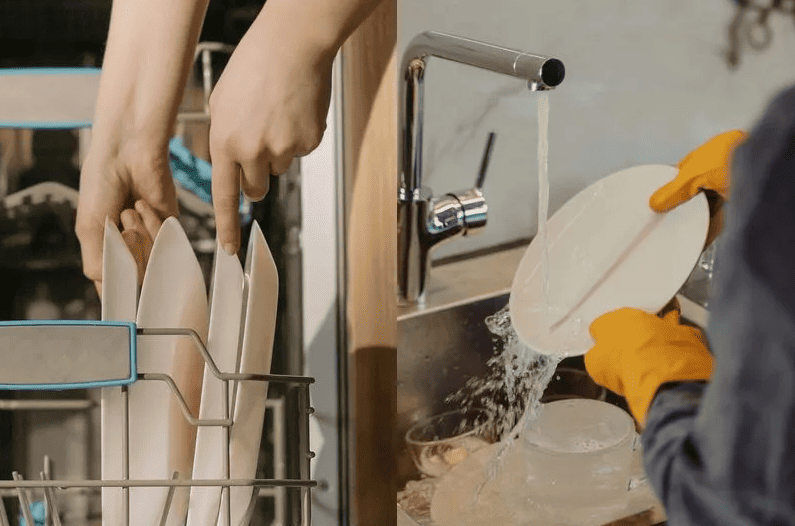
Water use comparison between dishwasher and washing by hand
Wondering whether a dishwasher or washing by hand uses more water? Here are the specifics to answer the question.

With water shortages in various regions across the country, many of us are increasingly conscious of reducing our water consumption. When it comes to your dishes, you may wonder what uses more water – a dishwasher or washing by hand. Here are the ins and outs to answer this question.
WHAT USES MORE WATER: LET’S TALK LITRES
On average, a full dishwasher uses about 13 litres of water to clean 144 items.
If you were to wash the same load by hand, you would use about 100 litres of water, according to a study by the University of Bonn in Germany.
FILLING YOUR SINK
According to Waterwise, the average amount of water to fill a kitchen sink is 30 litres. The capacity of a sink varies according to size and depth. Taking the example above of 144 items, you will have to change the water at least twice.
If the load includes heavily soiled plates, pots, and pans, it is likely that you will change the water three or even four times, which means 120 litres of water. This information should be the answer to the question about what uses more water.
You can minimise water changes by pre-rinsing, but rinsing under a running tap increases water consumption significantly. If you have a second sink you can fill it and dunk the plates instead. However, then you are filling two sinks instead of one.
Another noteworthy consideration is how long you are running cold water that is wasted while waiting for the water to heat up.
LITRES IN A DISHWASHER
An average, standard-sized dishwasher uses around 15 litres of water per load. A UK consumer non-profit organisation found that dishwashers are, on average, four times more water efficient than washing by hand per place setting. Their studies showed that the most water-efficient full-sized dishwasher uses almost 10 times less water to wash the same amount of dishes as hand washing them.
To use your dishwasher efficiently, make sure to wash full loads only. Washing smaller loads will waste water. Also make sure not to overload it as that may cause your dishes not to be washed properly, meaning you will have to wash them again.
DON’T HAVE A DISHWASHER? TIPS TO USE LESS WATER WHEN WASHING BY HAND
- If washing by hand, let the dishes pile up.
It is better to let dishes pile up and wash them all at once. Doing the dishes several times a day will use more water. - Install a low-flow faucet.
You can save water by installing an energy-efficient faucet to restrict the water flow. - Instead of washing each dish individually in running water, fill up your sink with water and detergent, turn off the tap, and wash a stack of dishes at a time.
